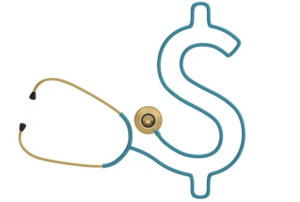Benefits Blog: Five Ways to Save on Healthcare Costs

It’s no secret that healthcare expenses have been on a steady, and costly, climb for the past two decades. Price hikes of 6.5 percent are projected in 2022, with the ongoing COVID-19 pandemic playing a significant role in those increases. This fact of financial life means employers must think both strategically and creatively about how to lower their health benefits expenses in 2022. Here are five ways to help achieve savings:
- Control Drug Spending - Drug prices rise faster than any other medical service or commodity, with costs now 33 percent higher than in 2014, according to GoodRx. Employers can educate employees on the price differences between name-brand and generic medications, and encourage using generics to save money while still receiving the same quality treatment.
- Encourage Active Benefits Participation – This includes encouraging employees to improve their health literacy, research treatments, and price shop. By seeing specific prices for procedures and other services, employees can educate themselves before making costly health decisions.
- Offer Savings Accounts with Carryovers - Health savings accounts (HSAs), flexible savings accounts (FSAs), and other tax-advantaged savings account options empower employees to control their own spending and improve their health literacy. Many accounts allow for fund carryover year to year, encouraging more contributions. Since many employers match contributions up to a limit, more money added to these accounts means greater tax savings for everyone.
- Embrace Virtual Health Options - A major takeaway from the pandemic has been the expansion of telehealth services, allowing individuals to connect with health professionals quickly, safely, and less expensively. Employers adding telehealth services into their plan expand access to care and lower expenses for everyone.
- Consider Plan Funding Alternatives - A more drastic option for reducing health costs is restructuring how plans are funded. For instance, a self-funded plan may be more cost- effective than paying a monthly premium for a fully insured plan. Other options include level-funding or reference-based pricing models, each of which carries its own set of administrative rules and legal constraints. Funding decisions should not be taken lightly and should be based on several factors, such as size of an organization, risk tolerance, and financial stability, including employees' ability to take on large premium increases.
Selecting the best methods to contain healthcare costs depends on each organization’s unique capabilities. The Benefits Team at The Reschini Group can help sort out the right option for your particular situation. Contact us today to get a conversation started.Resources:Benefits Insights: Preventive CareBenefits Insights: Flexible Spending Accounts (FSA)Know Your Benefits: Strategies for Saving on Prescription Drugs
Copyright 2022 The Reschini GroupThe Reschini Group provides these updates for information only, and does not provide legal advice. To make decisions regarding insurance matters, please consult directly with a licensed insurance professional or firm.
Benefits Blog: Be a Smart Health Care Consumer
 They used to say there were only two sure things in life – death and taxes. But another sure thing could be added today – rising health care costs.
They used to say there were only two sure things in life – death and taxes. But another sure thing could be added today – rising health care costs.
That makes it imperative for every individual to become a smarter consumer of health care, by taking charge of your care and coverage, asking more questions, and doing more independent research. Here are some specific steps:
Control out-of-pocket health care costs by carefully reviewing your health insurance plan options and selecting the ones that best meet the needs of you and your family. Those needing more chronic care and medications may want to choose a lower deductible plan, while those younger and healthier needing less care could potentially get by with a higher deductible option.Assert your rights as a patient and ask more questions of your doctor and pharmacist, such as:
- Why is this treatment necessary?
- How much will this treatment cost?
- Are there equally effective options that cost less?
- What is the current procedural terminology (CRT) code for this treatment, so that I can comparison shop my options?
- How can I improve my condition?
- Why are you suggesting this specific dosage?
- Is this prescription on my insurance plan’s approved list, or is this a specialty drug?
- Can you recommend a lower-cost or generic substitute?
Make every effort to choose in-network doctors when possible. Health care providers within your plan’s network typically cost less than those out-of-network. When selecting a plan, make sure your preferred doctors and hospitals are within the plan’s approved network.Seek outpatient care when available, without sacrificing quality of care. By avoiding being admitted to the hospital, the cost of your care goes down significantly. Only select an outpatient option when the proper level of care can still be provided.For more information on becoming a smarter health care consumer, contact the Benefits team at The Reschini Group today.Download these resources about reducing health care costs:How to Lower Health Care Costs Take Action - Preventive Care and Your Health Care Costs Take Action - Shop Around for Health Care
Copyright 2021 The Reschini GroupThe Reschini Group provides these updates for information only, and does not provide legal advice. To make decisions regarding insurance matters, please consult directly with a licensed insurance professional or firm.
Prescription Drug Coverage: Options to Reduce Costs
While it may appear that so much of health insurance coverage is out of the direct control of businesses and the employees and families they protect, one element does in fact offer a level of control available to just about everyone – the cost of prescription drugs.
 These costs can be reduced significantly, and mostly by using the same purchasing strategies applied to how consumers shop for other goods and services. As more consumers comparison shop for drugs, more retailers will compete to win their business, which can drive costs lower.Here are some tips on reducing the costs of prescription drugs:
These costs can be reduced significantly, and mostly by using the same purchasing strategies applied to how consumers shop for other goods and services. As more consumers comparison shop for drugs, more retailers will compete to win their business, which can drive costs lower.Here are some tips on reducing the costs of prescription drugs:
- Compare prices – Drug prices are not uniform, so consumers can save by shopping around.
- Substitute drugs – When a doctor prescribes a drug, it pays to ask if a cheaper alternative can be used.
- Buy in bulk – Purchasing drugs in larger quantities or for a longer period of time generally reduces the per-dose cost.
- Use mail-order pharmacies – Mail-order or online pharmacies offer the best deals on prescription drugs, especially for patients with chronic conditions.
- Explore an OTC option – Asking the doctor if an over-the-counter (OTC) drug would work as well as a prescription can cut costs. Many OTC drugs had previously been available only by prescription at first.
- Insist on generic – Generic medications work the same as brand-name drugs and can cost from 20 percent to 80 percent less. This option applies to both prescription and OTC medications.
- Inquire about assistance programs – Drug manufacturers and state governments offer drug assistance programs for elderly, low-income, and patients with disabilities.
- Enroll in discount programs – National drug store chains and national insurance plans sometimes offer programs with additional discounts for a small monthly or annual fee.
Regardless of how one approaches efforts to reduce prescription drug costs, it remains important to never skip doses or stop taking medications based on financial issues. Sticking to a medication schedule helps avoid more costly and potentially more complicated health issues later.Check with your benefits provider to see how the cost of prescription drugs can potentially be lowered within the scope of your coverage. The Benefits team at The Reschini Group can help in this regard.
Copyright 2019 The Reschini GroupThe Reschini Group provides these updates for information only, and does not provide legal advice. To make decisions regarding insurance matters, please consult directly with a licensed insurance professional or firm.
